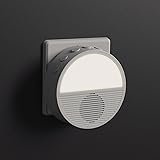Mastering Optimal Sleep: Your Path to a Perfect Score
Achieving a perfect sleep score every night is possible. The accompanying video reveals valuable tips for reaching this goal. Many people struggle with sleep, but small changes make a big difference. This guide explores strategies for boosting your sleep quality significantly.
Optimize Your Sleep Environment for Deeper Rest
Your bedroom setup greatly influences your sleep. Controlling temperature and light are crucial steps. These elements directly impact your body’s natural sleep processes.
The Power of Temperature Regulation
Sleep cycles benefit from specific temperatures. Your body naturally cools down before sleep. However, it needs to stay comfortable throughout the night.
Imagine if your bed adjusted its temperature automatically. This can mimic your body’s ideal cooling and warming needs. A temperature-controlled mattress, as mentioned in the video, provides consistent comfort. It supports different sleep stages efficiently. This technology helps maintain a stable core body temperature for restorative rest.
Embrace Total Darkness for Better Sleep
Light exposure strongly affects sleep hormones. Even small amounts of light can disrupt melatonin production. Melatonin is your body’s natural sleep signal.
Blackout curtains create an entirely dark room. This complete darkness signals to your brain that it is time to sleep. It prevents artificial light from interfering with your circadian rhythm. Imagine waking up naturally without morning light peaking through. This promotes a deeper, more undisturbed sleep cycle.
Diet and Lifestyle Choices for Enhanced Sleep Quality
What and when you eat, along with your beverage choices, are key. These habits have profound effects on your night’s rest. Adjusting them can unlock better sleep.
Strategic Meal Timing and Food Choices
The timing of your last meal matters significantly. Eating too close to bedtime can hinder digestion. Your body should focus on rest, not digestion, during sleep.
The video highlights a 10-hour gap between the last meal and bedtime. This extended fasting period allows your digestive system to finish its work. It prevents discomfort or indigestion from disrupting sleep. Imagine your body being fully prepared for rest, not busy breaking down food. Heavy or spicy meals are also known to cause sleep disturbances. Conversely, choosing lighter, easily digestible foods can prepare your body for sleep.
The Critical Role of Alcohol Avoidance
Alcohol often makes people feel sleepy initially. However, its effects on sleep quality are profoundly negative. It fragments sleep and reduces restorative stages.
The speaker in the video states they never drink alcohol due to its negative sleep effects. While it might help you fall asleep faster, alcohol severely impairs REM sleep. This stage is vital for memory consolidation and emotional regulation. Imagine waking up feeling rested, not groggy from fragmented sleep. Even a single drink can impact your sleep architecture. Therefore, avoiding alcohol altogether can significantly improve your sleep score.
Cultivate a Calming Nightly Wind-Down Routine
Preparing your mind and body for sleep is essential. A consistent wind-down routine signals to your brain that it’s time to transition. This helps reduce daily stress and mental rumination.
Establishing a Consistent Bedtime Ritual
A predictable evening routine helps regulate your body clock. It lowers stress hormones and promotes relaxation. Consistency is truly key for optimal results.
The video mentions starting a family wind-down routine at 7:00 p.m. for a full hour. This dedicated time creates a buffer between daily stresses and sleep. Activities include reading, talking, stretching, or light playing. Imagine leaving the day’s worries behind before getting into bed. This helps quiet a busy mind. It prevents your brain from ruminating on problems. Engaging with family also fosters connection and peace. Turning off screens and engaging in calming activities is highly effective. These actions promote the natural release of melatonin. They prepare your body and mind for a night of deep, restorative sleep. This structured approach helps you achieve that perfect sleep score more consistently.








